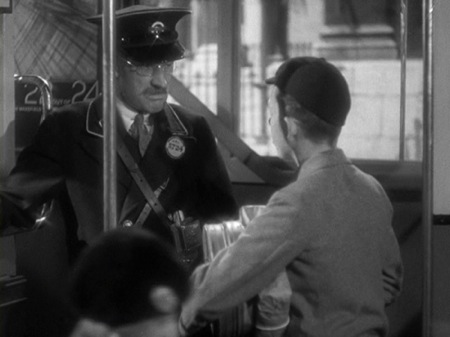 Alfred Hitchcock frequently cited Sabotage as the film that forced him to refine his technique: suspense above all—or at least, up to a point. It was a mistake, he later reckoned, to mix suspense too closely with sentiment, to tighten the noose while remaining indifferent to the neck. In the film’s most (in)famous sequence, a bomb explodes on a London bus, the work of a terrorist who plants the device on an innocent boy. “I broke the rule,” Hitchcock said, “that the hero is always rescued from danger at the last minute … There were yowls of protest from everyone, especially the mothers.”
Alfred Hitchcock frequently cited Sabotage as the film that forced him to refine his technique: suspense above all—or at least, up to a point. It was a mistake, he later reckoned, to mix suspense too closely with sentiment, to tighten the noose while remaining indifferent to the neck. In the film’s most (in)famous sequence, a bomb explodes on a London bus, the work of a terrorist who plants the device on an innocent boy. “I broke the rule,” Hitchcock said, “that the hero is always rescued from danger at the last minute … There were yowls of protest from everyone, especially the mothers.”
This fatal indifference is actually crucial to the effectiveness of Sabotage, which possesses a straight-ahead ruthlessness that Hitchcock’s other British films generally lack. There’s no time for music hall routines or local color here. Not that Sabotage lacks for black humor. All this bus hubbub unfortunately overshadows a wicked irony embroidered into the script; when the boy climbs up to the bus, the operator stops him and informs him that he cannot bring two reels of nitrate film onboard. It’s flammable, after all.
